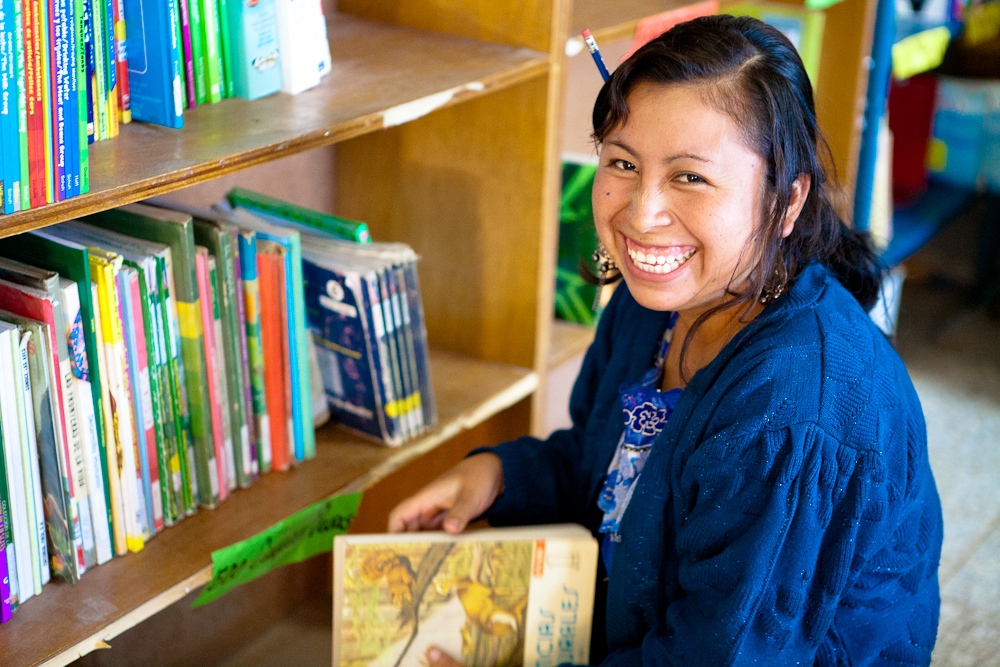
Rosenda Yac Escún is the new librarian in Xesampual, an indigenous K’iché village in Guatemala’s Central Highlands. Each weekday, she walks 45 minutes to the library from her tiny aldea (village), some three miles away. Formerly an elementary schoolteacher, she is now working closely with Child Aid literacy staff to learn the ins and outs of running a community library.
Despite its tiny size, Xesampual has had a library for years. But it was rarely open and remained a dark, neglected building with almost no usable books. The books it did have were unsuitable for kids and sat untouched on old shelves collecting dust. No one in the village knew how to run a library. In fact, most adults in Xesampual don’t know how to read.
Today, Child Aid is bringing children’s books to this forgotten building and training Ms. Yac not just to run the library, but to turn it into a center of literacy for Xesampual and surrounding communities.
“The trainings have been wonderful,” says Ms. Yac. “I have plans to start reading stories out loud to kids during the week.” In rural Guatemala, children are rarely read to, despite the fact that it is a critical first step in promoting early literacy skills. In a community where most children had never even held a storybook, and where teachers have minimal training in how to engage children in books, daily reading activities such as this can be transformative.
So far this year, Ms. Yac has participated in three intensive librarian training workshops, and is learning how to run reading programs that promote the library and the importance of reading within the community. She’s working with local teachers to bring children into the library on a regular basis, and she’ll soon learn how to create a book-lending program so children can take storybooks home to share with their families. Ms. Yac is also helping Child Aid operate its Books to Villages program to get rotating boxes of books to nearby village schools, using Xesampual’s library as a hub.
Child Aid’s ongoing work with Ms. Yac and the library in Xesampual is a perfect example of how the organization moves beyond the build-and-run approach practiced by many nonprofits and government agencies. Instead, it takes a multifaceted approach to literacy, one which focuses not just on books, but on training, capacity building and ongoing reading programs for children.
Today, 14 outlying communities use the library in Xesampual. Dozens of children, more than ever before, visit every day. Working in some of Latin America’s poorest and remotest communities, Child Aid is creating libraries that are truly outposts for literacy.